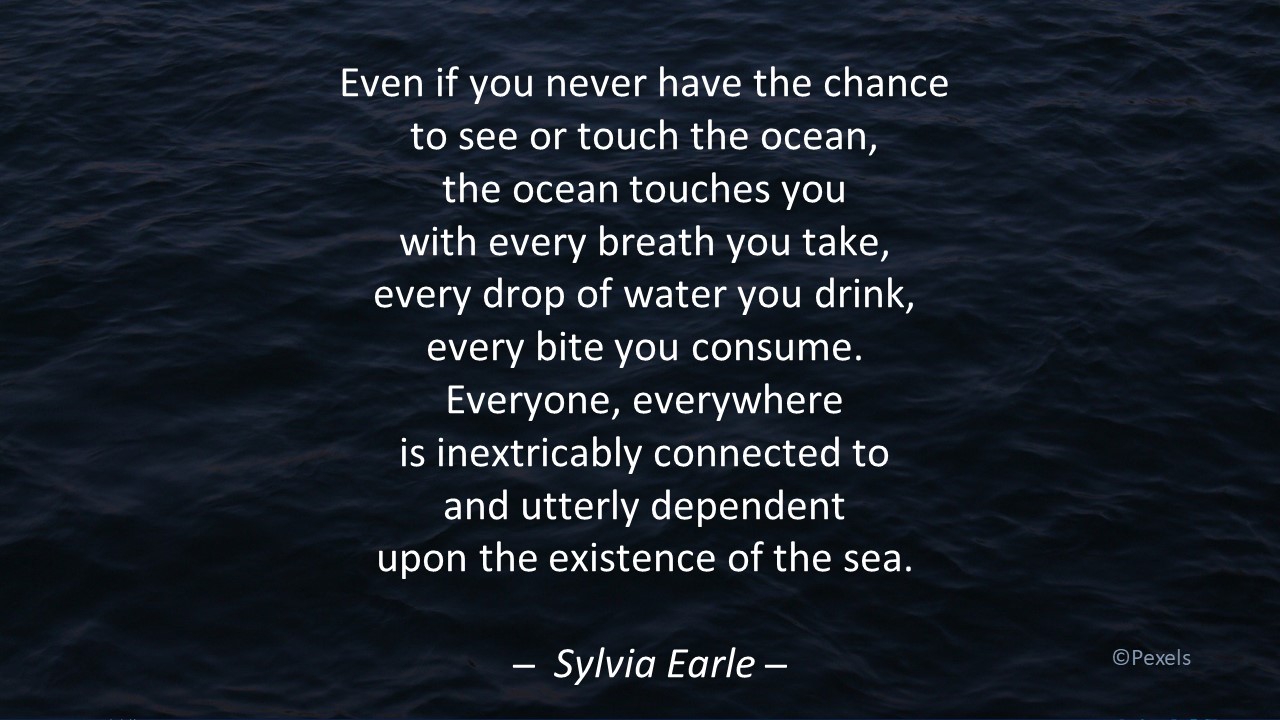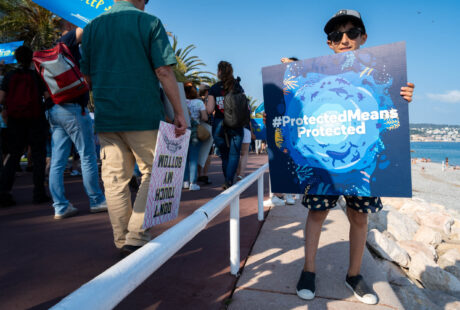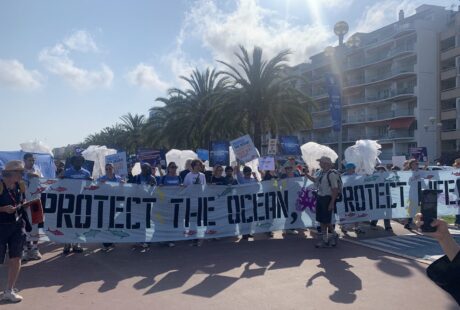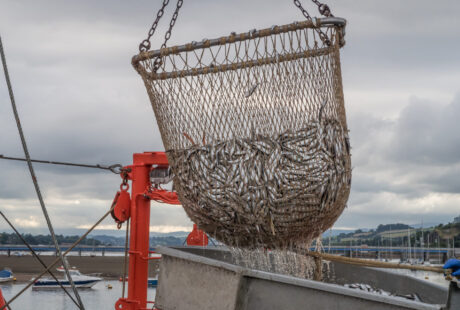Thank you for showing up in such numbers. At this crucial time for the ocean, it is heart-warming to see so many keen to act in its interest. Not that the ocean needs us – it’s we who need the ocean.

I live by the ocean. Portugal has a stunning coastline and every day I am in awe of the ocean’s life-sustaining power. It is difficult to imagine here. It is truly humbling. I also feel grateful, knowing how incredibly generous the ocean is to us. It inspires wellbeing and happiness, as Easkey will also show us. But we are not returning that generosity in equal manner…
The ocean is the life support system for our planet and is crucial for our existence. No-one expresses this better than ocean explorer Dr Sylvia Earle.

Over 70% of our planet is ocean. It is home to incredible diversity of life. It pumps around nutrients, helps regulate weather patterns and produces half of the oxygen we breathe. The ocean is also our main protector against the climate crisis, standing between us and the worst effects of climate breakdown. It has absorbed over 90% of the heat trapped by our CO2 emissions and, as the largest active carbon sink on earth, sequestered over 25% of the carbon of those emissions. But it is reaching its limits, getting warmer and more acid. And this goes fast, much faster than originally anticipated. Scientists calculated the amount of heat we have put in the world’s oceans in the past 25 years equals to 3.6 billion Hiroshima atom-bomb explosions…This comes at great expense of marine life.
The ocean can only protect us against climate change if it is resilient, with thriving and diverse marine life and healthy ecosystems. Yet a recent global assessment by a United Nations body shows that global biodiversity is decreasing at an alarming pace. In fact, we are in the midst of the 6th mass extinction.And marine biodiversity loss is happening at an even faster pace than on land Europe’s seas and ocean are no exception, as the EEA’s recent assessment shows (Hans will soon present you the facts and figures).
How can this be? In a European Union that prides itself on such a comprehensive set of environmental and marine policies and regulations? For 30 years, together with our members and other NGOs, Seas At Risk has worked diligently to develop strong and sustainable marine policies. We have seen an impressive body of regulation take shape. And yet several trends keep pointing in the wrong direction.Here we are in 2020. The year we should have ended overfishing, according to the Common Fisheries Policy. In some seas we indeed see improvements and some stocks are recovering as a result. But we still see wide-spread overfishing.2020 The year when Europe’s seas should have been restored to good environmental status, in line with the Marine Strategy Framework Directive. And while a lot of effort has gone into data and knowledge collection, Europe’s seas are still in a poor condition.2020 The year when we should have halted biodiversity loss and should have restored 15% of the degraded ecosystems, according to the Biodiversity Strategy. Here and there we see progress. Europe now has over 10% of its seas designated as marine protected areas. But these are often mere paper parks, where dredging, bottom trawling and other harmful activities are still allowed. It seems that while we have won some battles, we are losing the war.
But the war is not over yet – we still have a fighting chance. Because 2020 will see several important policy events that can mark a change, including the conference of the Biodiversity Convention, the negotiations on the UN high seas treaty and the UN Ocean conference where we will take stock of progress to the ocean Sustainable Development Goal 14. The outcome of this conference will feed into that. If the EU is to take leadership on international ocean governance, the best way of doing so is leading by example and making sure Europe’s seas are restored to full health. We have the green deal that provides possibilities to support the ocean, through the Farm to Fork, the Biodiversity and the Circular economy strategies.
However, the future outlook is not good… pollution from plastics and contaminants, overfishing, biodiversity loss, eutrophication, acidification and other climate impacts… And the pressure keeps mounting. This graph by the Stockholm Resilience Centre certainly paints a daunting picture. More and more industries are being pushed into the ocean. This is the era of the blue economy.
How can we turn the tide? Why are policies failing to deliver? What else needs to be done? This is what we will discuss today. Is it a lack of leadership and vision? Lack of commitment? Or of money? Are we failing to communicate effectively the importance of the ocean to our citizens and policy makers? Is it because we still think there are no limits to economic growth? And we hope innovation and technology will fix it all? How can we counter the relentless blue economy push of more and more industries into the ocean? Can current policies keep all of these activities within ecological boundaries? Or is a more fundamental change needed? System change. This is what scientists and policy advisors are calling for. It is what our children are calling for in the streets. But what would it look like? How would it change and better our lives? And most importantly, how can it help the ocean to regenerate? I look forward to hearing the next speakers’ ideas about it.
Together with more than 100 NGOs from across Europe, we have put our ideas for change on paper. The Blue Manifesto, which has been shared with you, outlines our proposed road map for this decade. It is our blue answer to the European Green Deal. Change is needed both on land and sea. By 2030 we want to see at least 30% of the ocean fully or highly protected, we want to see a complete transition to low impact fishing, we want to see a clean, pollution-free ocean. We also want effective planning of human activities that supports the restoration of thriving marine ecosystems. So that their accumulative impacts will not add to the pressure from climate change. We matched this vision with a pragmatic rescue plan. Many of our proposed actions should be taken already now, without further delay. Importantly, the Blue Manifesto also includes action related to land-based policies, because the causes of ocean deterioration are all too often to be found on land. And so are the solutions. The circular economy has a key role in preventing marine litter for instance. We lined out ‘what needs to be done’ in the Blue Manifesto. Today, we are here to gather ideas on how it can be done with the greatest effect.
The coming decade will be decisive. With political commitment, and EU leadership, I am confident we can deliver that change. With the abundant brain power collected in this room, I am sure we can create powerful waves of change. We will set all of you to work in the afternoon breakout sessions, during which I hope we can harvest many ideas for ocean action. So that in 10 years, the ocean and Europe’s seas will have regenerated. And us as well. Today I ask you to be generous with your ideas, be generous for the ocean.
Posted on: 4 February 2020



